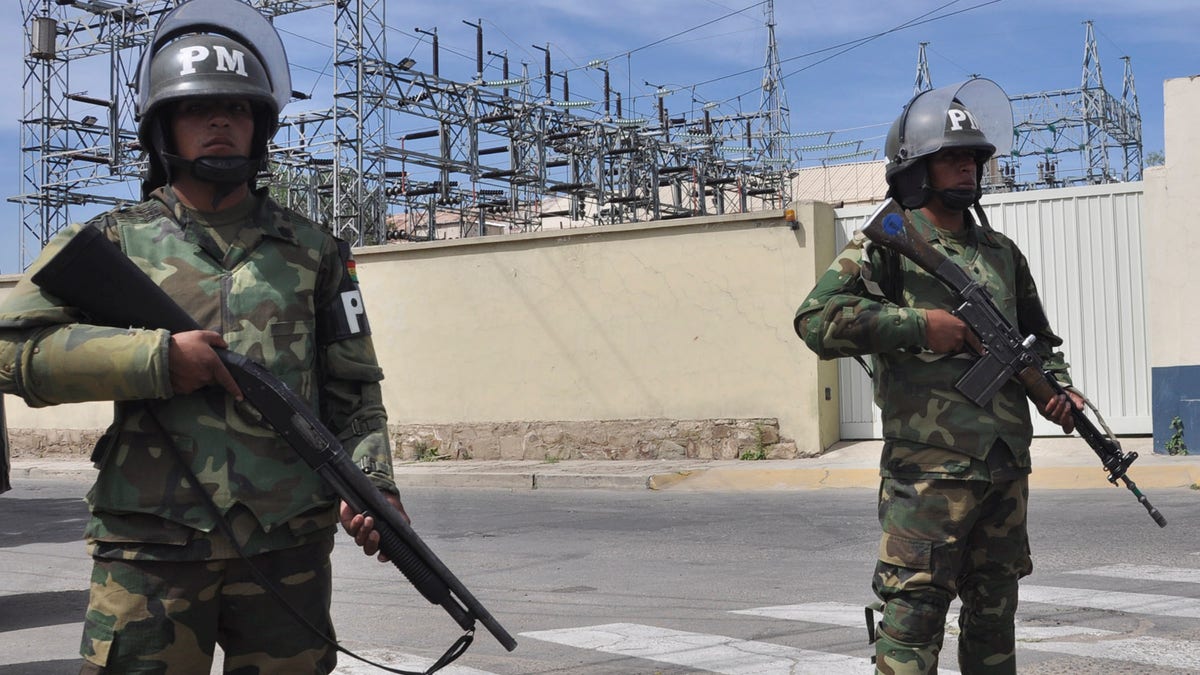
Military police stand guard outside Transportadora de Electricidad, the Spanish electricity grids Bolivian subsidiary, in Cochabamba, Bolivia, Tuesday, May 1, 2012. Bolivia's President Evo Morales says his government is completing the nationalization of the country's electricity industry by taking over its electrical grid from the Spanish-owned company, Red Electrica. (AP Photo) (AP2012)
As Spain faces an economic and financial crisis that has the economy in trouble and driven unemployment above 25 percent, more bad news. One by one, Spanish investments made in Latin America in better times, seem to be under fire.
On Tuesday, the government of Bolivia announced the nationalization of a Spanish company that owned most of its electricity grid. This follows Argentina's announcement, last month, that it would nationalize YPF, an energy company partly owned by the Spanish energy giant Repsol SA.
Pushing back against Bolivia on Wednesday, Spain warned that Bolivia's nationalization will hurt the Latin American country's image among international investors. Economy Minister Luis de Guindos also said Madrid will be watching out to make sure Bolivia pays a fair price for the forced takeover of the Spanish company.
"The Spanish government does not like this kind of decision because we believe it is essential to maintain legal security in the investment process in countries like Bolivia," de Guindos said in Brussels, where he is to meet with his EU counterparts.
Of the decisions by Bolivia and Argentina to expropriate companies, he said "They are mainly negative for the countries that make them, for the governments that make them."
The seizure was announced Tuesday by President Evo Morales at a ceremony marking May Day.
The vice president of Spain's main business federation, Arturo Fernández, said that in the wake of these moves announced by Argentine President Cristina Fernández de Kirchner and now Morales, Spain's government has to be tough. These nationalizations "could be contagious" and be emulated by countries such as Ecuador or Venezuela, he said.
"It is just not right that Mrs. Kirchner did what she did and now in Bolivia they toy with the Spanish people like this," Fernandez told Spanish state television.
"I do not see this happening with the French or the Germans. It seems we have been singled out. We have invested a lot of work and money, and we have resolved too many economic problems in those countries to be treated like this now."
This report is based on The Associated Press.
Follow us on twitter.com/foxnewslatino
Like us at facebook.com/foxnewslatino
